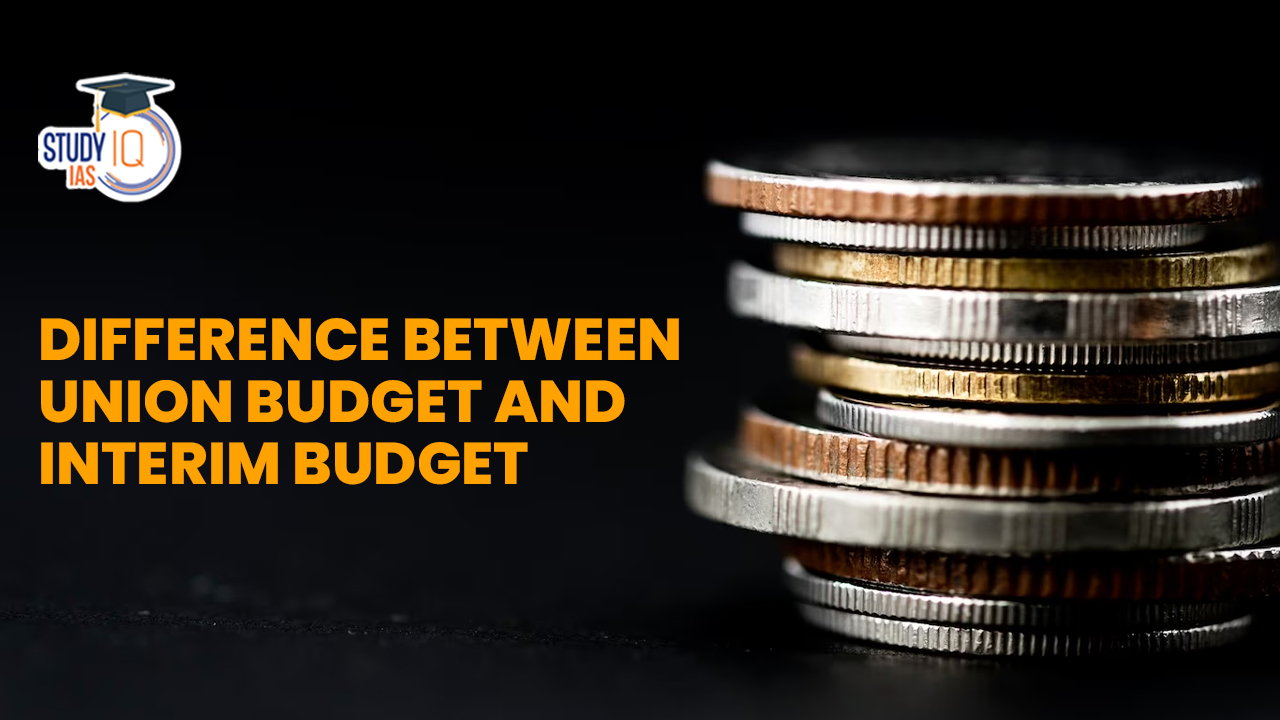Table of Contents
Difference Between Union Budget and Interim Budget
This article deals with the Difference Between Union Budget and Interim Budget which is a two important terminology. The Union Budget and Interim Budget are both financial plans presented by the government of India, but they serve different purposes and are presented in different circumstances. In the realm of financial planning and governance, budgets hold significant importance, serving as comprehensive blueprints that outline a nation’s economic vision and fiscal priorities.
Among the various types of budgets, the Union Budget and Interim Budget stand out as crucial pillars in shaping a country’s financial trajectory. As these terms evoke curiosity and often intertwine, it becomes essential to understand the Difference Between Union Budget and Interim Budget, their distinctions and the roles they play in steering the nation’s financial course. You can also check here the Difference Between Interim Budget and Vote on Account.
Major Difference Between Union Budget and Interim Budget
Here is the major Difference Between Union Budget and Interim Budget discussed below from every aspect:
| Aspect | Interim Budget | Union Budget |
| Timing | Presented before the general elections or during a transition period when a full-term government is not in place. | Presented by the government with a clear mandate and a full-term tenure. |
| Duration | Covers only the immediate financial needs for a few months until the new government is formed and can present a full-fledged budget. | Encompasses the entire fiscal year, typically from April 1 to March 31 of the following year. |
| Policy Direction | Focuses on maintaining continuity of government policies and programs. | Sets new policies and financial allocations for the upcoming fiscal year in line with the government’s vision and priorities. |
| New Schemes and Projects | Usually avoids announcing significant new schemes or projects that could commit the upcoming government. | Introduces new schemes, projects, and allocations for various sectors to drive economic growth and development. |
| Tax Changes | Generally, no significant changes in tax structure are introduced. | Often includes proposals for changes in tax rates, exemptions, and other fiscal measures to boost revenue collection. |
| Vote on Account | A provision is made for a Vote on Account to grant the government permission to spend during the transition period until a full budget is passed. | A full budget is presented, including detailed estimates of revenue and expenditures, along with proposals for new taxes and spending. |
| Parliament’s Role | Parliament’s approval is sought only for the Vote on Account. | Parliament debates and approves the Union Budget, and its proposals become law once passed. |
| Economic Survey | The Full Economic Survey is not usually presented along with the Interim Budget. | The Economic Survey is typically released a day before the Union Budget, providing an analysis of the economy’s performance and outlook. |
| Purpose | Serves as a temporary budget to meet essential expenses until a new government takes office and presents a comprehensive budget. | Forms the comprehensive financial plan for the fiscal year, outlining government’s revenue and expenditure, and policy direction. |
| Government’s Status | The government presenting an Interim Budget is usually a caretaker government. | Presented by a stable government that has a full mandate to govern. |
| Importance | The Interim Budget is considered essential for maintaining financial stability during transitional periods. | The Union Budget is of paramount importance as it outlines the government’s fiscal priorities and economic policies. |
| Long-term Planning | Usually lacks long-term planning as it is a stop-gap arrangement. | Includes provisions for long-term planning and the execution of government policies throughout the fiscal year. |
| Pre-election Populism | Often avoids announcing major populist measures to avoid influencing the election outcome. | May include populist measures and schemes to appeal to the electorate, especially if presented close to elections. |


 Mechanisms to Combat Judicial Corruption...
Mechanisms to Combat Judicial Corruption...
 Registrar General and Census Commissione...
Registrar General and Census Commissione...
 Ambedkar Jayanti 2025: Biography, Legacy...
Ambedkar Jayanti 2025: Biography, Legacy...





















